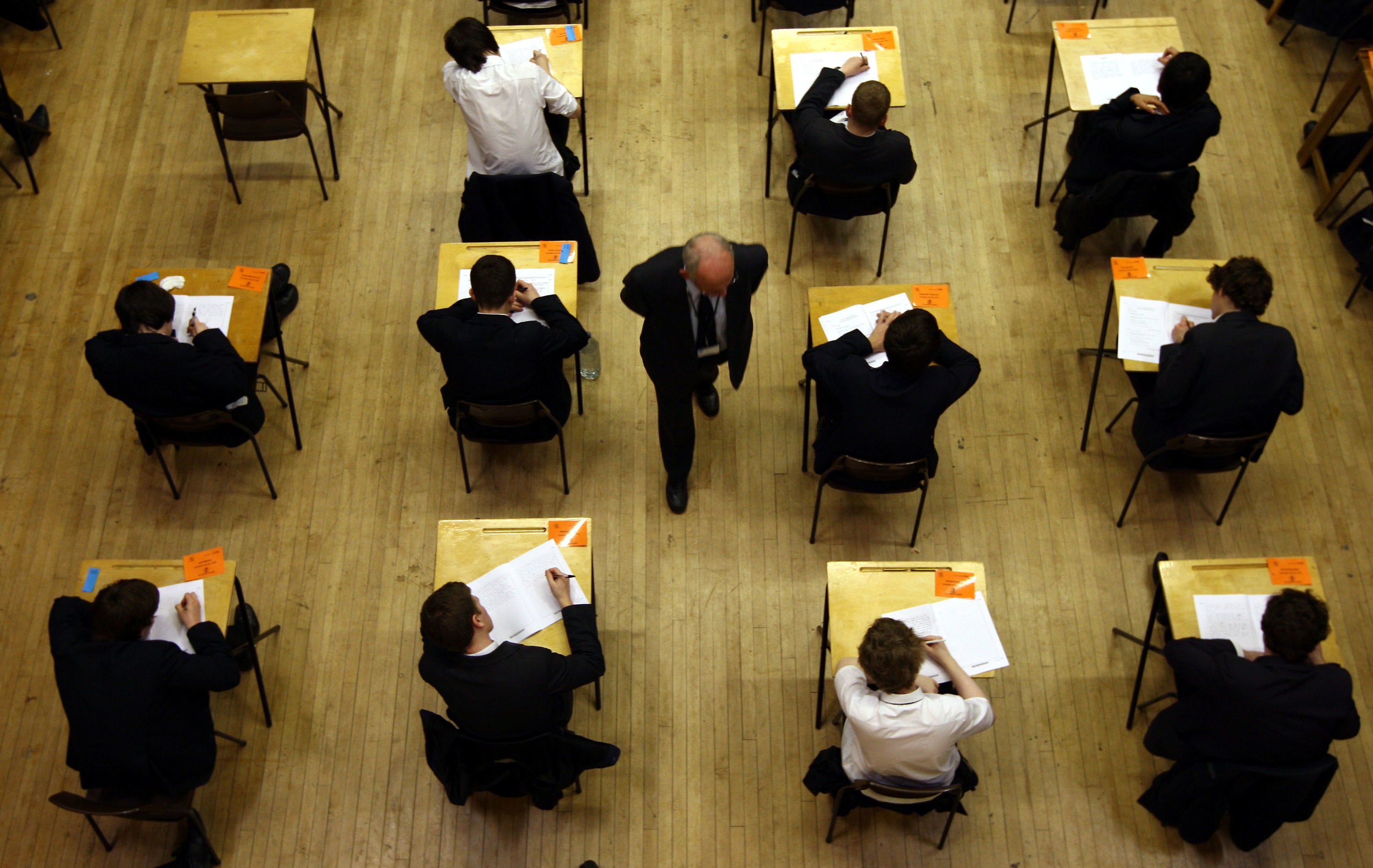Pupils with exam anxiety could sit papers at different times
The Ofqual chief regulator says exam boards must do everything they can to support the growing number of pupils with anxiety following the pandemic.

A growing number of pupils are suffering from exam anxiety this year and want to sit their papers separately away from the school hall, heads were told.
Ofqual advised that schools can use special consideration to help pupils, for example allowing them to sit papers at different times.
Tom Middlehurst, the Association of School and College Leaders’ curriculum lead, said in a discussion of the 2022 GCSE and A level exams, that “one of the things we’re picking up…is that there are a large number of more students who have evidenced anxiety and are coming with doctor’s notes and GP notes saying ‘we have anxiety about coming to the exams’ or ‘we need our own room and therefore an invigilator'”.
“For schools and colleges that is just not practical,” he said at the school leaders’ annual conference, adding, “That’s not something they’re able to do.”
Different times could mean, for example, a student starting their paper a few minutes later than others, once other students in the exam hall had settled down
Jo Saxton, Ofqual’s chief regulator, said that exam boards must make sure they had thought through the implications for special consideration for pupils in 2022.
“Make sure you’ve thought about being adaptable and flexible enough to meet the needs of students in 2022, so we’re asking them to think those things through.
“I’ve been really clear with exam boards that meeting the needs of students is my first priority,” she said.
She said there were scenarios where they could allow different timings for papers or other adjustments that could be make to help anxious pupils.
“(There are) all sorts of arrangements that can be used when there are clashes, and so if physical spaces are the limiting factor, exam boards are required through special consideration requirements that we have to work with (schools) to meet the needs of students,” she said.
Richard Garrett, Ofqual’s policy director, said that if schools were finding individual cases tricky to make a judgment on they should contact their exam board.
Dr Saxton said pupils she spoke to were “adamant” that they did not want people to look down upon their teacher-assessed results, awarded following the cancellation of full public exams during the pandemic.
“In fact some of the students…were angry that the GCSEs they were awarded in 2020 are doubted by some,” she said.
One pupil had been “very clear he does not want to go to university not having done public exams, and that’s something I’ve heard students saying up and down the country”.
“We’ve heard calls for an approach that somehow takes account of the differential impact of the pandemic, regional grading perhaps, or some sort of individual Covid uplift for those students most affected during their course,” she said, adding she understood these demands “intuitively” as it did not feel fair that some students had been so badly affected in comparison to others.
“Qualifications will only serve young people like those I talked to yesterday in the long term if they give a reliable indication of what the student knows and understands,” she said.
“I’ve met students at college at the moment on what they call ‘Covid grades’.
“Some of the students I talked to last week are realising that their apprenticeship is further away than they thought because they have more maths to do than their grades had indicated.”
“As a society we won’t recover from this tragic pandemic if students receive grades that just aren’t based on what they know and can do,” she said.
Students sitting GCSEs and A levels this summer will have some support in place to mitigate the impacts of the pandemic.
Exams regulator Ofqual has previously announced that grade boundaries will be set roughly between 2019 pre-pandemic levels and boundaries in 2021, when teacher assessment was used to set grades.
And in all subjects, with the exception of English literature, history, ancient history, geography and art and design, pupils will be given notice about the topics to be covered in this summer’s exams.
The information is designed to aid their preparation and help focus their revision.
In GCSE maths, combined science and physics, pupils will be given equation sheets to reduce the number of equations they need to memorise.
In GCSE English literature, history, ancient history and geography, subjects where advance information will not be released, pupils will study and be examined on fewer topics.
An Ofqual spokesperson clarified: “Different times could mean, for example, a student starting their paper a few minutes later than others, once other students in the exam hall had settled down. This has previously happened when a student has been anxious prior to entering an exam hall. It certainly wouldn’t mean on a different day.”
Bookmark popover
Removed from bookmarks